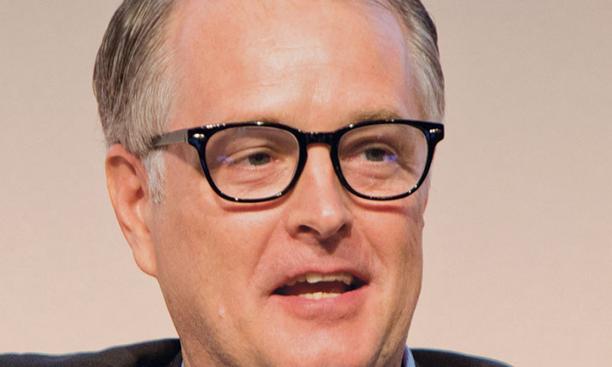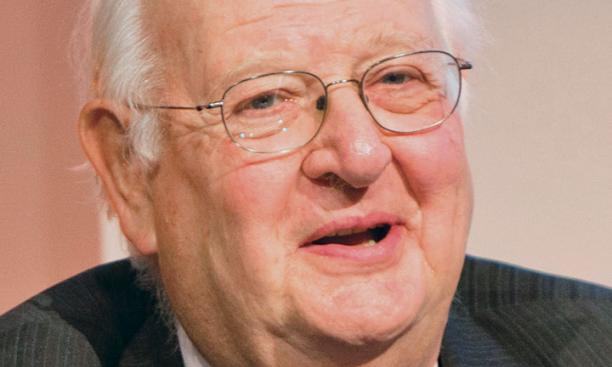



With the recent Ebola crisis largely under control, experts gathered in Dublin in November at the Princeton-Fung Global Forum to discuss lessons learned. But while they agreed on the need for an international response to epidemics in developing countries, they differed on what that role should be — some calling for a large-scale effort to strengthen health-care systems in the region; others suggesting that such a task should not be forced on nations with many needs.
The views about the role of global relief organizations provided perhaps the sharpest contrast during the Fung forum. Nearly 300 people attended the conference, listening to a series of panels and keynote talks by professors, medical scientists, leaders of nonprofits, information-technology experts, cultural anthropologists, aid workers, and public officials.
The event provided an opportunity for Princeton to showcase its multi-disciplinary global-health research, with talks by more than a dozen professors in departments that included the Woodrow Wilson School, politics, economics, sociology, anthropology, molecular biology, ecology and evolutionary biology, and history. A team of students live-tweeted the event.
Some of the experts, including leaders of NGOs, said the global community should help rebuild and strengthen health-care systems in developing nations like those at the epicenter of the Ebola outbreak that has killed more than 11,300 people. Peter Piot, co-discoverer of the Ebola virus, argued that without stronger systems, “it will be very difficult to absorb the shocks” and prevent small outbreaks from becoming major ones.
Rebecca Levine ’01, an Epidemic Intelligence Service officer deployed to Sierra Leone by the U.S. Centers for Disease Control, agreed. Absent health-care systems that are as strong as those in the West, she said, crises are bound to recur — and health-care providers will be unable to deliver the services people need. Later, Levine explained that Western action is important not only to assist developing nations, but as a matter of national security for the West as well. “We live in a global society,” she said. “Nobody is safe from these diseases until everyone is safe from them.”
Princeton economics professor Angus Deaton said the history of humanitarian aid shows that sometimes it works — with the Ebola response “more on the positive side” — but sometimes the results are “a catastrophe.”
“People say we have to construct health systems all over the world,” he said. “Who the hell is this ‘we’? It’s not the people who are being affected, for sure. It’s some undefined community of global well-wishers.”
Surveys have shown that health-care issues are not a top priority for people across Africa, Deaton said, and “throwing money at them without dealing with underlying problems is often going to have unintended consequences that undermine what you are doing.”
Doug Mercado *07, who led USAID’s Disaster Assistance Response Team for the Ebola crisis, said that humanitarian aid “did achieve a success” in West Africa. Mercado, who has worked on disaster-relief efforts for 25 years, said that in contrast to long-term aid programs in countries such as Syria and South Sudan, in West Africa “for once, the humanitarian community could play a role in bringing the crisis to an end, and that’s what we’ve done there.”
Still, several speakers criticized the failure to respond quickly during the early months of the Ebola outbreak. Many said the crisis highlighted the need to better understand and incorporate the concerns and cultural practices of people in affected areas — such as caregiving rituals and burial practices — in working to gain the community trust that is essential to stemming an epidemic. The critical role of local health-care workers — many of whom were unpaid — was cited repeatedly, though there was disagreement over whether there should be a push to pay them as public employees.
The Ebola outbreak sounded a second alarm for the global community, experts said, following the HIV/AIDS epidemic that began in the 1980s. “When are we going to learn from the wakeup calls?” asked Woodrow Wilson School professor Adel Mahmoud. “We know we’re not prepared; we know we can be prepared; and we know we’re not doing anything about it.” Mahmoud repeated his call for governments, nonprofits, and drug companies to support a global fund that would develop and deploy promising vaccines.
“Epidemics are inevitable; pandemics are optional,” said Jeremy Farrar, director of the Wellcome Trust, a London-based biomedical research charity. “We can change things,” he added, noting estimates that an international campaign to combat malaria has averted more than 3 million deaths since 2000.
The Dublin conference was the third annual Fung forum. The conferences are supported by a $10 million gift in 2012 from William Fung ’70 to promote analysis of global issues. Prior conferences focused on the future of the city and of higher education.
